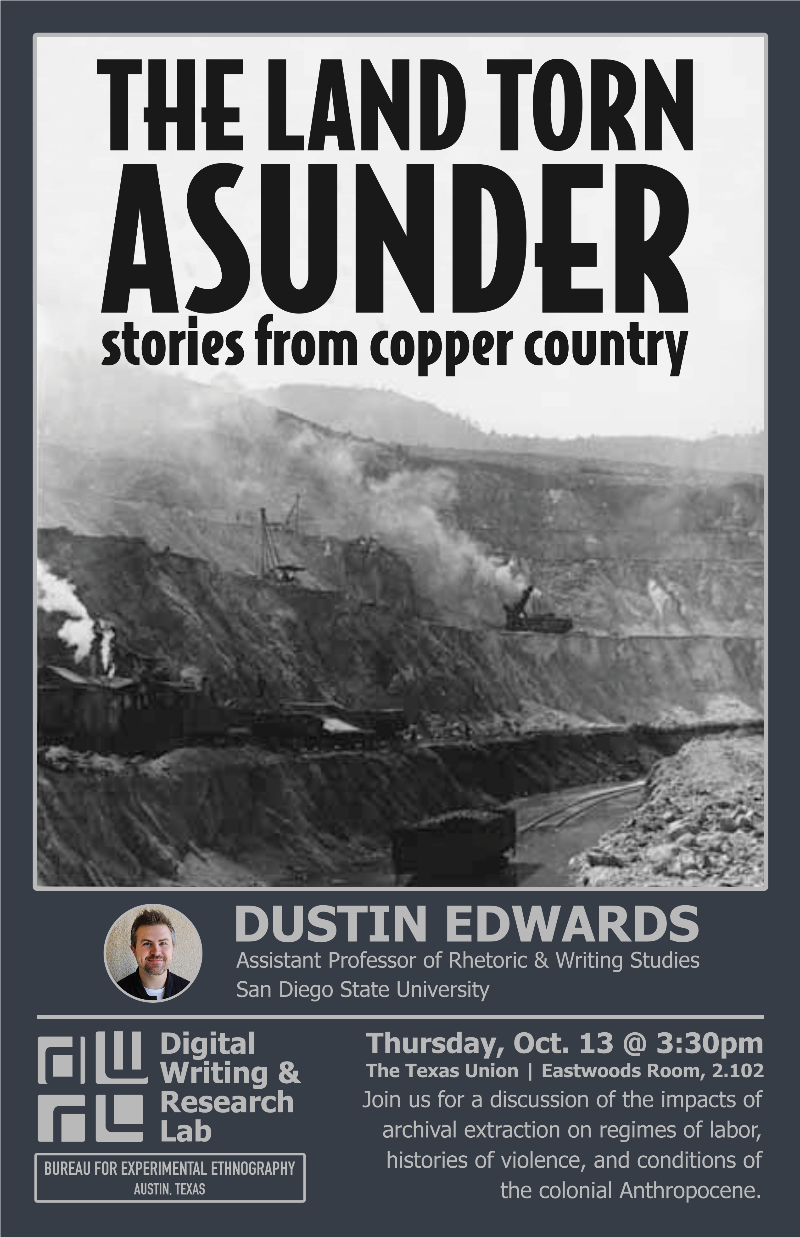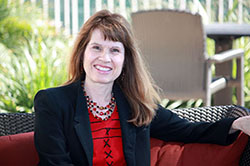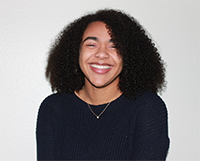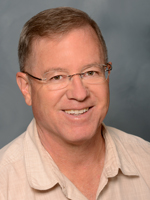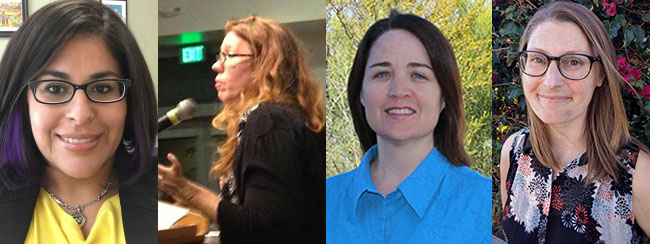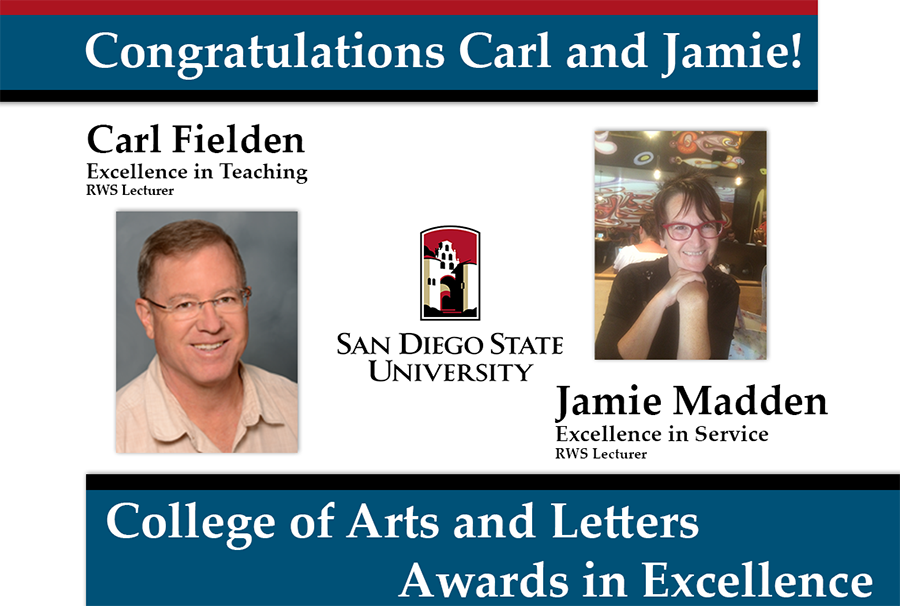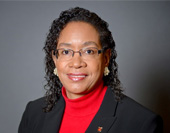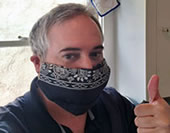
News & Events
Current News
The Land Torn Asunder: Stories from Copper Country
RWS Assistant Professor Dustin Edwards will be giving a talk and leading a discussion at the University of Texas, Austin on digital rhetoric based on topics from his book Digital Damage and Rhetorical Invention at the End of Worlds, follows such conditions to the deserts, mountains, and waterways of New Mexico.
Digital archives are also earth archives. Woven throughout our digital devices, platforms, and large-scale infrastructures are the stories of deep conditions where mined materials have been pulled from the depths of earth’s history and extracted through regimes of labor and histories of violence. This talk, drawn from my book project Digital Damage and Rhetorical Invention at the End of Worlds, follows such conditions to the deserts, mountains, and waterways of New Mexico. In particular, after outlining the key terms, assumptions, and methodological priorities of the project, the presentation will offer a bundle of stories about the Chino Copper Mine. Told in a fragmented, interruptive, experimental, and implicative manner, these stories detail the consequences that persist in the wake of the ever-expanding pit. In doing so, these stories not only put pressure on the detached metaphors that populate our digital imaginaries (e.g., “the cloud”), but they also implicate digital rhetoricians by insisting the conditions of our work are grafted into the bigger story of the colonial Anthropocene.
Read more at The Bureau for Experimental Ethnography, UT Austin's website.
RWS Lecturer Appears in ABC 10 News
RWS instructor and alumnus Jacob Hubbard was recently featured on ABC 10 News San Diego. Hubbard discusses the advantages of utilizing social media to develop certain skills that help him connect with his students. Taking Neurodiversity into account when communicating with students is something that instructors can be aware of, and implementing the use of social media in the classroom can foster communication between those instructors and students on the autism spectrum and those that are not.
Recent RWS Publications
Suzanne Bordelon, “Motherhood, Saliency, and Flattening Effects: World War I and the ‘The Greatest Mother in the World’.” Rhetoric Review, vol. 41, no. 2, 2022.
Suzanne Bordelon, “The 1931 Lemon Grove Case and Segregation Arguments: Learning from a Multilayer, Cross-Border Rhetorical Endeavor.” Rhetoric Society Quarterly, vol. 52, no. 1, 2022, pp. 32–46.
Dustin Edwards, Bridget Gelms, and Rich Shivener, “Infrastructural Storytelling: A Methodological Approach for Narrating Climate (In)Justice in Technical and Professional Communication.” Technical Communication Quarterly, vol. 32, no., 3, 2023.
Joshua Hall, "Psycho Therapy: On Pain and Self-Improvement," Sport Literate, Vol. 16 Issue 2.
Joshua Hall, "Transcending Cultural Sickness: On Mark Edmundson’s 'The Age of Guilt',” Los Angeles Review of Books, May 10, 2023.
Jacob Hubbard, Sounds of Yesterday. Celestial Seaside Publishing, 2024.
Jacob Hubbard, "The Pedagogical Dangers of AI Detectors for the Teaching of Writing," Composition Studies, June 30, 2023.
Ann Johns, Essential Actions. U of Michigan P, 2022.
Anthony Lince, "Stepping Back to Step Forward: A Tribute to Mike Rose." Journal of the Council of Writing Program Administrators, vol. 45, no. 2, 2022, pp. 81–84.
Matthew Louie, “Mindful Language-Use: Recognizing Indigenous Peoples when ‘Decolonizing Writing Centers’.” Axis Special Edition: Imagining the Decolonizing Writing Center: From Standard Edited English to Returning the Land, Praxis: A Writing Center Journal, 2022.
Glen McClish, “‘The very breath of life’: The Conversational Rhetoric of Elizabeth Gaskell’s North and South.” Journal for the History of Rhetoric, vol. 25, no. 3, 2022, pp. 279–302.
Glen McClish, “Exploring the Performed Argument: Teaching Poetry Rhetorically.” The Practice of Rhetoric [Poetics, Performance, Philosophy]: Essays in Honor of Jeffrey Walker. Edited by Debra Hawhee and Vessela Valiavitcharska, U of Alabama P, 2022, pp. 67–89.
Kellie Miller, "Representations of Identity and Agency in Charlotte Brontë’s Villette," Nineteenth-Century Gender Studies, vol. 18, no. 1, 2022.
Cezar M. Ornatowski. “Reinventing the Polish Presidency: Lech Wałęsa and the Political Imaginary of Post–1989 Poland.” In Beyond the Cold War: Presidential Rhetoric in Central and Eastern Europe. Ed. Rebecca M. Townsend. Peter Lang, 2024, 23-46.
Cezar Ornatowski, "Weaponized Rhetoric: Cognitive Struggle in the Contemporary Media Space." Contemporary Rhetorical Theories, vol. 8 no. 4, 2022.
Jennifer Sheppard, "How the Pandemic Changed Us: Training, Technologies, and Pedagogies in COVID-Era Online Writing Instruction." Computers and Composition Online, Spring 2023.
Kathryn Valentine, "Listening to the Friction: An Exploration of a Tutor’s Listening to the Community and Academy." Praxis: A Writing Center Journal, vol. 19, no. 1, 2022.
Archives
New Faculty Publications
Congratulations to Dr. Kathryn Valentine, RWS Professor and Director of the SDSU Writing Center on her recent publication! Kathryn's article "Listening to the Friction: An Exploration of a Tutor’s Listening to the Community and Academy" has been published in Praxis: A Writing Center Journal, Volume 19, No. 1.
From the abstract: This article explores what it might mean to listen to the “friction,” here understood as ideological contestations of writing, as a part of writing center work. For my purposes, listening to the friction focuses on how tutors’ listen to what haunts writing in the academy and therefore what haunts writing center work.
Congratulations to Dr. Suzanne Bordelon, RWS Professor and Undergraduate Advisor on her recent publication! Suzanne's article, “Motherhood, Saliency, and Flattening Effects: World War I and the ‘The Greatest Mother in the World’” has been published in Rhetoric Review Volume 41, Issue 2.
From the abstract: "This essay analyzes Alonzo Earl Foringer’s “Greatest Mother in the World” poster, created for the American Red Cross during World War I but circulated in Britain and America during World War I and II. Although the image was highly circulated and reproduced, it has received limited scholarly attention." (Bordelon, 79)
Norton Writer’s Prize Winner
Congratulations Anna Glavee! Anna was awarded the Norton Writer’s Prize in 2021 for her paper “Black Enough: Protecting Linguistic Identity in the Writing Center” originally written for her RWS 220 class.
About Anna
Anna is a Social Work Major that intends to go into research. Her research interests
are focused on intersectionality's impact on mental health among youth of color. She
wrote this essay about linguistic discrimination in education and the importance of
being encouraged to communicate in one's personal language.
Most Influential Faculty
Congratulations to Carl Fielden who has been selected as the Most Influential Faculty member by his student Serena Hodson. Serena, herself, was selected as the Outstanding Graduate for Interdisciplinary Studies (IS3D) for Commencement 2022.
Both Carl and Serena will be recognized at the IS3D Commencement ceremony, which will
be held from 9:00 to 11:00 AM on Sunday, May 15, 2022.
RWS Faculty Receive New National Endowment for the Humanities Grant Awards
Congratulations to Our RWS Faculty: Consuelo Salas, Cali Linfor, Karen Koss, and Kathryn Valentine!
Salas, assistant professor of rhetoric and writing studies, was awarded a grant of $145,832 for the project, “Creating Expansive Approaches to the Teaching of Writing in a Southern California Border Region.” Salas and her team, including lecturers Cali Linfor and Karen Koss, and Kathryn Valentine, director of the SDSU Writing Center,will develop faculty enrichment opportunities with teaching resources to build curriculum for writing courses that center on a global rhetorics approach.
The grant is a three-year initiative that will bring together diverse faculty dedicated to inclusion, equity, and expanding the rhetorical tradition. “We will design first-year and upper division writing course curricula that prioritizes equitable rhetoric and writing teaching practices, linguistic diversity, and asset-based assessment practices,” Salas said.
Read the full story on SDSU NewsCenter.
Graduate Student Receives Award
Congratulations to RWS M.A. student Eirein Gaile Harn, recipient of a Master’s Research Scholarship for the 2021–2022 academic year.
Eirein Gaile’s research aims to extend Onomastics (the study of names) into the field
of Rhetoric. She will explore names as rhetorical sites of meaning by considering
the rhetorical strategies people use to navigate the relationship between their names
and their cultural identity. Specifically, she seeks to understand the role names
play in cultural identity development.
2021 Publications
Suzanne Bordelon and Elizabethada A. Wright, “Crypto-Feminist Enthymemes in the Periodical Texts of Louise Clappe and Fanny Fern.” Nineteenth-Century American Activist Rhetorics. Edited by Patricia Bizzell and Lisa Zimmerelli, MLA, 2021, pp. 265–276.
Dustin Edwards, “Critical infrastructure literacies and/as ways of relating in big data ecologies,” Computers and Composition, vol. 61, no. 1, 2021.
Glen McClish, “‘Gems of Negro Eloquence’: Memorializing the African American Rhetoric of the 1895 South Carolina Constitutional Convention.” New North Star: A Journal of the Life and Times of Frederick Douglass, vol. 3, 2021, pp. 29–44.
Jennifer Sheppard, “Pandemic Pedagogy: What We Learned from the Sudden Transition to Online Teaching and How it Can Help Us Prepare to Teach Writing in an Uncertain Future.” Composition Studies, vol. 49, no. 1, 2021, pp. 60–83.
Manual Perez-Quiñones and Consuelo Salas, “How the Ideology of Monolingualism Drives Us to Monolingual Interaction.” Community and Culture Forum, ACM Interactions, vol. 28, no. 3, 2021.
Teaching Awards
Heart-felt congratulations to Carl Fielden and Jamie Madden for their respective awards from the College of Arts and Letters!
Carl has been recognized with the Excellence in Teaching Award as a Lecturer and Jamie with the Excellence in Service Award. These awards are well deserved and timely, if not long overdue! Jamie has been a lecturer in RWS since 2004 and Carl since the department’s inception in 1993. Though they may receive daily appreciation from students and other faculty for their diligent work, it is a wonderful opportunity to formally acknowledge their achievements and show them that their efforts have not gone unnoticed.
Graduate Student Receives Awards
Congratulations to RWS M.A. student, Lorise A. Diamond, recipient of both a Graduate Research Scholarship Award for 2020-21 and a Sally Casanova Scholarship.
Lorise's thesis proposal outlines an inquiry into the rhetorical functions of location, space, and linguistic messages, a comparison between policy statements and written messages from Chief Diversity Officers that encourage diversity, equity, and inclusion on university campuses and the spaces where those messages are either spurned or enacted. Conducting site visits and fieldwork at three minority-serving institutions, Lorise intends to connect scholarship in rhetoric, cultural studies, and critical race theory and contribute to contemporary conversations about equity and inclusion in higher education. Moreover, research findings will offer insights to campuses and initiatives committed to the academic success of diverse student populations through both policy and practice.
CAL Teaching Excellence Award
Congratulations to Jason Parker, who received the College of Arts & Letters Excellence in Teaching Award for Non-Tenure
Track Faculty. Jason Parker has taught in the Rhetoric and Writing Studies Department
for the past fourteen years. For the 2019-2020 academic year, Jason has served as
the Assistant Director of the Lower Division Writing Program and advises a cohort
of graduate teaching associates who are leading first-year writing courses. Learn more about Jason and the award.
Grant Awarded
Congratulations to RWS lecturer, Celia Sigmon! Celia, the newly appointed director of the Border Voices Poetry Project, was awarded a $5,000 grant from the Adams Foundation and matching funds from a private
donor. The money will be used to teach poetry classes in San Diego city schools grades
3-12, to fund a children’s poetry anthology and a poetry reading, featuring Jane Hirschfield
in May 2020 at SDSU.
Favorite Faculty - Did you know?
Each year, students in our residence halls nominate their favorite teachers. This year, six of the forty one nominees taught RWS classes! We thank these instructors for their hard work and dedication to teaching in 2018/2019:
- Ryan Barela (2nd year!)
- Enrique Cervantes
- David Judd
- Jake Maguire
- Robert Stein
- Tyler Thompson (2nd year!)
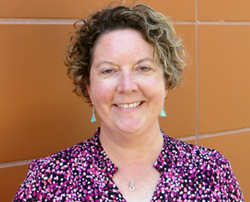 Award and New Publication
Award and New Publication
Congratulations to Dr. Jennifer Sheppard, whose book chapter “Issues in Digital and Multimodal Writing: Composition Instruction for the 21st Century,” was just published in Irene Clark's (Ed.) Concepts in Composition: Theory and Practices in the Teaching of Writing (3rd ed.) by Routledge.
Dr. Sheppard was also a winner of the College of Arts & Letters Excellence in Teaching
Award for tenure-track/tenured faculty. Learn more about her award.
Minifee Featured on SDVoyager
Dr. Paul Minifee was recently profiled on the SDVoyager. Learn more about Paul and why he is so passionate about helping students. Read the full article.
Favorite Faculty Award
Congratulations to Gretchen Barksdale who won the 2017-2018 Favorite Faculty Award for small classes from the Division of Student Affairs, Residential Education Office.
Students in SDSU residence halls vote on the award, which honors all faculty, including tenured/tenure-track, lecturers, and graduate students. Other RWS nominees for the award included Ryan Barela, Catherine Hoffman, Dr. Paul Minifee, Jonathan Rodley, Monika Slater, Katlin Sweeney, Andrew Testa, Tyler Thompson, and Michael Underwood. Excellent showing by RWS faculty!
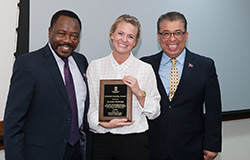
Gretchen Barksdale
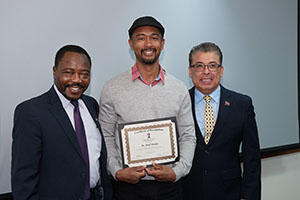
Dr. Paul Minifee
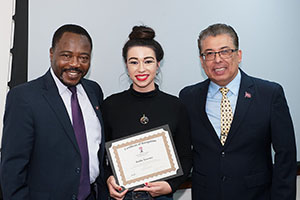
Katlin Sweeney
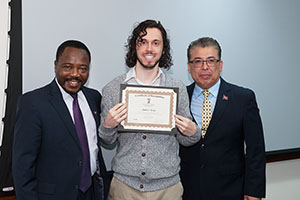
Andrew Testa
Teaching Excellence Award
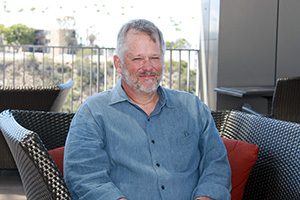 Congratulations to Dr. Steve Merriam, winner of the College of Arts & Letters Excellence
in Teaching Award for non-tenure track faculty.
Congratulations to Dr. Steve Merriam, winner of the College of Arts & Letters Excellence
in Teaching Award for non-tenure track faculty.
For nearly two decades, Steve has successfully taught a wide variety of courses for Rhetoric and Writing Studies, from lower division offerings such as RWS 100, 200, and 290, to upper division classes such as 305W, 390W, 501, 503W, 504, 506, and 507. Throughout this range of courses, he has distinguished himself while helping thousands of students improve their writing, speaking, and critical thinking skills. In addition to his excellent work as a teacher of rhetoric and writing, Steve has played important leadership roles in our department that extend beyond the work typically performed by lecturing faculty. For example, when Rhetoric and Writing Studies adopted the College of Business’s introductory writing course, Steve was instrumental in transforming it into RWS 290, Business Writing and Rhetoric, an innovative course centered on the application of rhetorical principles to business writing. He also designed and implemented RWS 390W, a W course particularly designed for students from the College of Business. He is widely admired by his colleagues and students.
The annual RWS Landmark Lecture invites prominent scholars in Rhetoric and Writing Studies to discuss current research and pedagogy in our field. For more information, please see the lecture page.
Society for Technical Communication (STC) Meeting: Tech Comm Job Search Progression at SDSU
Tuesday, March 6, 2018
Ever wondered how to tap into the hidden technical communicator job market? Do you know what you’re supposed to do once you find it? STC San Diego’s Job Search Progression at SDSU is your chance to learn how to conduct a successful job search in the hidden technical communicator job market. Join the STC San Diego Slack community
